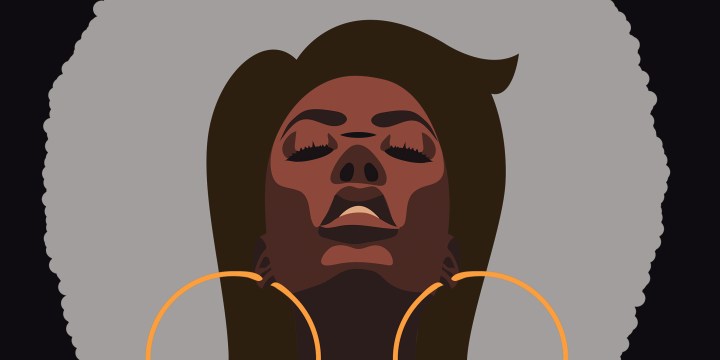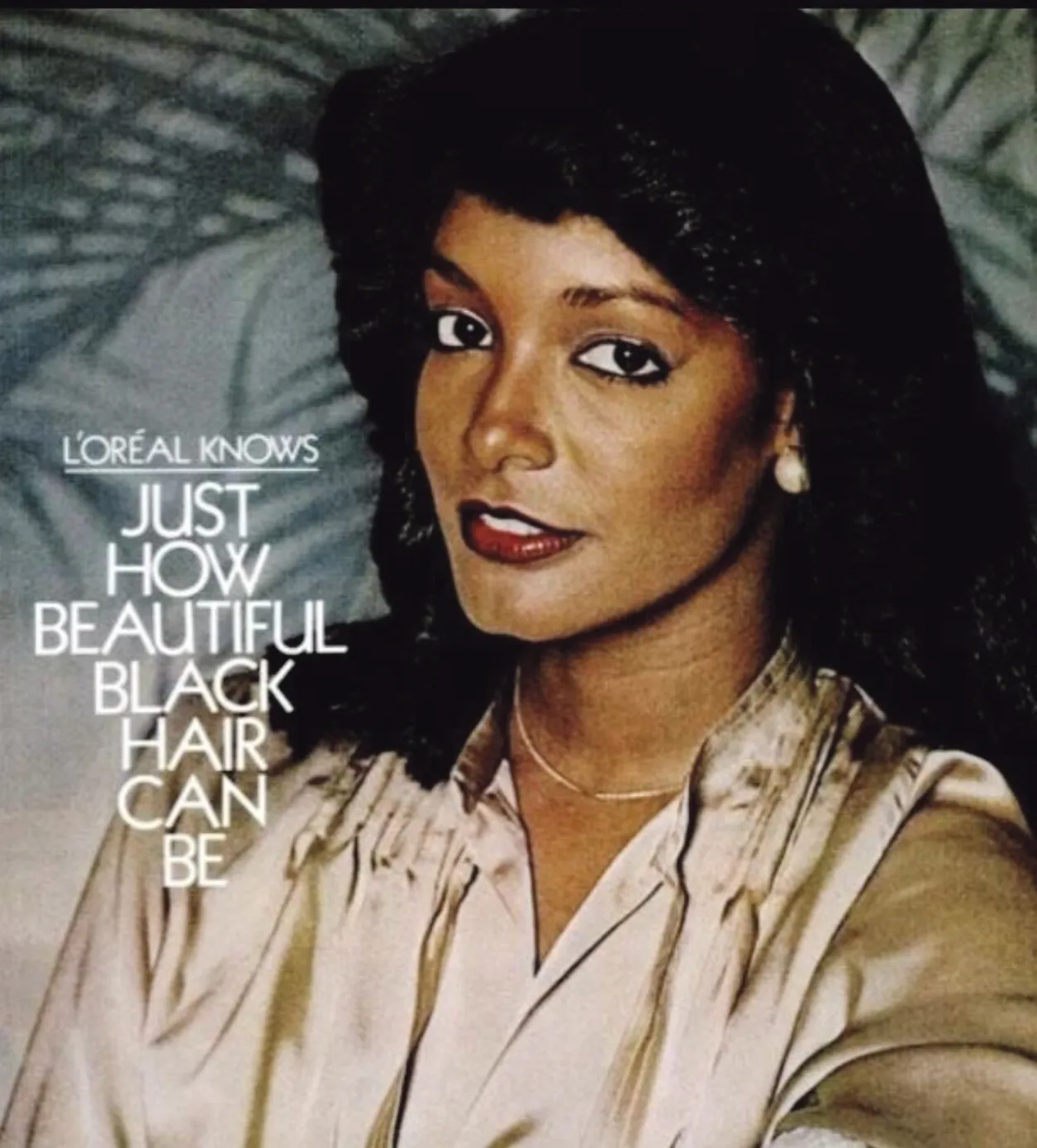STRAIGHT TOXICITY
‘Hair relaxers give us cancer’ – a legal campaign by US women sparks interest in SA

Thousands of US women say hair relaxers have put them at higher risk of uterine cancer. In South Africa some products were previously found to be ‘like drain cleaner’.
In a huge and growing legal campaign, more than 8,000 US women are pushing for compensation from companies selling hair relaxers which they say have put them at higher risk of uterine cancer.
The companies include L’Oréal USA, SoftSheen, Revlon, and Namaste Laboratories LLC.
Products linked to divisions of some of the companies are also sold in South Africa, where it has been found that certain hair relaxers, including international brands, have pH levels equivalent to that of drain cleaners.
In the US, the women’s complaints effectively cover decades because that is how long some of them have been using the hair relaxers.
The Food and Drug Administration there is also considering a ban on some hair-straightening chemicals linked to short- and long-term adverse health effects, ranging from breathing problems to cancer risks.
And while there do not appear to be complaints from hair relaxer users in South Africa, and companies have said before that their products are above board, Daily Maverick has established there are grounds to explore whether similar legal action can be launched here.
South Africa’s consumer watchdog is already on alert as to what is playing out in the US.
The American legal action has sparked interest elsewhere.

An old advert used in the US plaintiffs’ court papers, showing L’Oréal touting ‘how beautiful black hair can be if it’s straightened’.
‘Women internationally impacted’
Court cases have also started in Canada, and UK law firm Penningtons Manches Cooper was looking into whether a lawsuit similar to the US could be launched there – it said an estimated 80% of black UK women regularly used hair relaxers.
This week, Diandra Debrosse Zimmermann, the co-chair of US law firm DiCello Levitt’s Mass Tort Practice and the managing partner of its Alabama office, told Daily Maverick more than 8,000 women were part of a major multidistrict hair relaxer litigation there, in which she was involved.
There were also other lawsuits, meaning that figure is higher.
Debrosse Zimmerman explained that while the European Union had stricter regulations in terms of cosmetics, it was her “sense” that hair relaxers being sold in different countries, like the US and South Africa, had “similar buckets of chemicals”.
Those chemicals, she said, were problematic on different levels.
What made hair relaxer even more risky was that it was applied directly to the scalp and left on for a while.
Debrosse Zimmerman said she had already received some calls from individuals in South Africa who expressed interest in the US legal action.
She said she would also be happy to talk to lawyers in this country.
“We knew [this matter] impacted women of African descent around the world,” Debrosse Zimmerman added.
Double cancer risk
Focus on hair relaxers increased in the US in October 2022.
That was when the US National Institutes of Health (NIH) reported on a study, possibly the first of its kind, that found that “women who used chemical hair-straightening products were at higher risk for uterine cancer compared to women who did not report using these products”.
The NIH stated: “The researchers did not collect information on brands or ingredients in the hair products the women used. However… they note that several chemicals that have been found in straighteners (such as parabens, bisphenol A, metals and formaldehyde) could be contributing to the increased uterine cancer risk observed.
“Chemical exposure from hair product use, especially straighteners, could be more concerning than other personal care products due to increased absorption through the scalp which may be exacerbated by burns and lesions caused by straighteners.”
According to court papers in the major US case, relating to the flagged companies trying to have the legal action against them dismissed, within days of that report’s publication, “complaints were filed across the country exclusively against manufacturers of hair relaxer products”.
The allegations beneath the complaints were for “various conditions and ailments far beyond uterine cancer including, but not limited to, ovarian cancer, breast cancer, fibroids, miscarriage and preterm delivery purportedly caused by use of Defendants’ products”.

The plaintiffs in the US lawsuit say the companies involved have advertised their hair relaxers as a way to exploit anti-black standards of beauty. The creator of the popular Ultra Sheen, Johnson Products Company, had an estimated 80% of the black hair care market by 1970. It was sold to one of the defendants, Procter & Gamble, in 2004.
‘Toxic and unsafe’
One of those who lodged a complaint against several companies, including L’Oréal USA, was Jenny Mitchell of Missouri who was diagnosed with uterine cancer in 2018. (Some plaintiffs in other cases had cancer too.)
Her complaint said: “Ms Mitchell’s uterine cancer was directly and proximately caused by her regular and prolonged exposure to phthalates and other endocrine disrupting chemicals found in Defendants’ hair care products.”
The number of complaints ballooned.
In February 2023, the US Judicial Panel on Multidistrict Litigation consolidated several individual “and putative class actions” that were pending in 19 districts.
Children… were specifically targeted ‘to increase sales and ensure generations of dedicated consumers – all while having knowledge that the Toxic Hair Relaxer Products they designed, manufactured, advertised, and sold were carcinogenic’.
According to a consolidated complaint dated August 2023, the companies listed as defendants were selling “unsafe” and “toxic” products that increased a woman’s risk of uterine and ovarian cancer, and if used often, more than doubled the risk of those cancers.
“The Toxic Hair Relaxer Products contain constituent chemicals and active ingredients which include chemicals that disrupt the endocrine system, alter hormonal balance, cause inflammation, alter immune response, and cause other toxic responses that both initiate and promote cancer,” the complaint said.
“Defendants systematically omitted, misrepresented, and continue to omit and misrepresent the significant health impacts of Toxic Hair Relaxer Product use, all while targeting women of colour and taking advantage of centuries of racial discrimination and cultural coercion which emphasised – both socially and professionally – the desirability of maintaining straight hair.”
Read more in Daily Maverick: My Hair, My Heritage: Black women share stories of embracing their natural hair
Children, it charged, were specifically targeted “to increase sales and ensure generations of dedicated consumers – all while having knowledge that the Toxic Hair Relaxer Products they designed, manufactured, advertised, and sold were carcinogenic”.
It listed the plaintiffs in the case, saying they had been unaware that the products they were using were “unsafe for human use” and had they known it, they would not have bought the hair relaxers.

Beginning in 1990, Strength of Nature developed and began marketing Just For Me, the first hair relaxer targeted at young black girls. Just for Me entered the market with a catchy commercial. On the product packaging, Strength of Nature lauded the product as being safer by claiming that it was a no-lye formula designed to be ‘gentle’ on children’s sensitive scalps. The plaintiffs in the US case say the company knew that Just for Me contained more chemicals and was equally or more toxic than some adult brands.
‘No merit’
Companies cited as defendants in the US tried to have the matter against them dismissed.
They are of the view that the complaints against them do not contain enough specific detail that can be pinned on them.
In November 2023, though, a judge in Chicago ruled that many of the claims against the companies may proceed.
Shortly after that, L’Oréal issued a statement saying its highest priority was customers’ health and its products went through rigorous scientific testing.
“While we understand the desire of each plaintiff to find answers to and relief from their personal health concerns, we are confident in the safety of SoftSheen-Carson’s products and believe the allegations made in these lawsuits have neither legal nor scientific merit,” it said.
“The novel study upon which all these lawsuits [are] based recognised the need for further research and it made no finding of a causal connection between the use of those products and any conditions alleged by the plaintiffs.”
Asked if US products contained the same ingredients as those sold in South Africa, and whether any complaints about its hair relaxers emanated from this country, a L’Oréal representative told Daily Maverick this week the lawsuits against it and 10 other companies were “filed solely in the United States and Canada”.
The representative then referred to the company statement issued in November.
South Africa has been referenced briefly in related US court proceedings.
Products sold abroad
Those driving the major case tried to get information from some companies, L’Oréal USA and Namaste Laboratories LLC included, about products sold exclusively outside of the US.
This, they argued, was relevant to the companies’ “knowledge and notice of the harmful effects of chemicals contained in products sold abroad and in the US”.
Court papers, dated last month and from Chicago, show that Namaste Laboratories LLC had an affiliate in South Africa, Urban Laboratories International, which produced and sold hair relaxer.
Namaste, according to those court papers, said its affiliates’ products were “formulated with ingredients sourced from different vendors in different sites” compared with its US products.
The court did not order that Namaste produce its foreign affiliates’ documents.
As for L’Oréal USA, it had argued it did not control documents belonging to its parent company headquartered in France.
The court, however, ordered L’Oréal USA to produce certain documents.
South Africa keeps watch
Asked about the overall US matter last week, South Africa’s National Consumer Commission told Daily Maverick it had not received any complaints about hair relaxers.
It added: “The relevant Act in this regard is the Foodstuffs, Cosmetics and Disinfectant Act of the Department of Health (DoH) and its Regulations.
“While our involvement is limited to when the standards as set by the DoH have been violated, the NCC will watch this development very closely.”
Last week, South Africa’s Consumer Goods and Services Ombud told Daily Maverick it had not received complaints about hair relaxers so it could not comment.
Corrosive ‘drain cleaner’
The safety of hair relaxers has caused concern in this country before.
Scientists from the University of Cape Town’s Hair and Skin Research Laboratory published a study in the 2019 South African Medical Journal.
They had analysed 39 brands of hair relaxers via products bought in Cape Town. More than half the brands were international.
The study found: “The pH of all the relaxers tested was at levels deemed corrosive to the skin and may contribute to the high prevalence of alopecia in females with Afro-textured hair.”
A section of that study said the pH of hair relaxers effectively equated to that of drain cleaner.
“The final pH of the product of all relaxers was >12.00 with the presence of the petrolatum in the formulation,” it said.
“Relating hair relaxers to household products, bleach has a pH of about 11.00, oven cleaners about 12.00 and drain cleaners 12.00-13.00. The pH of products used by women with Afro-textured hair, and on children, is therefore equivalent to that of drain cleaners…
“During the hair-relaxing process, consumers are exposed to pHs in the hazardous and corrosive range… The cosmetics regulatory framework has no pH restrictions for relaxers.”
Relaxer recall
In April 2022, L’Oréal South Africa recalled some of its hair relaxer products – tubs of Dark and Lovely Precise Diamond Straight and Shine Relaxer.
A statement at the time said the recall was because some users “may experience increased hair breakage, and increased scalp irritation”.
The statement added that customers and safety were important to the company.
“At L’Oréal South Africa, we are committed to producing products that are safe and effective. The safety of our consumers and the quality of our products is our top priority.” DM
This story first appeared in our weekly Daily Maverick 168 newspaper, which is available countrywide for R29.






















We were forced by our mothers and grandmother’s to relax our hair and being surrounded with those toxic fumes are seen as a passage of rite we have to follow, for us to have beautiful hair. It’s great that the industry can be held accountable for the composition of the product as we all know when we relax our hair, for a period of two to three weeks we will have sensitive scalps with scabs coming out of our hair. I am not amazed at the “drain cleaner” strength of the products, because we go in for the relaxing of our hair, knowing exactly the amount of pain we will experience, all because we have been conditioned that the product is formulated with our hair’s optimum beauty status in mind.